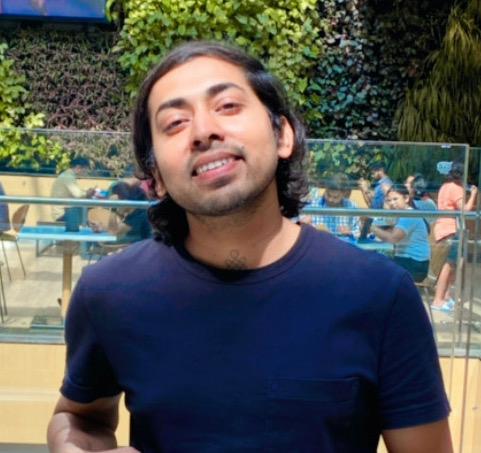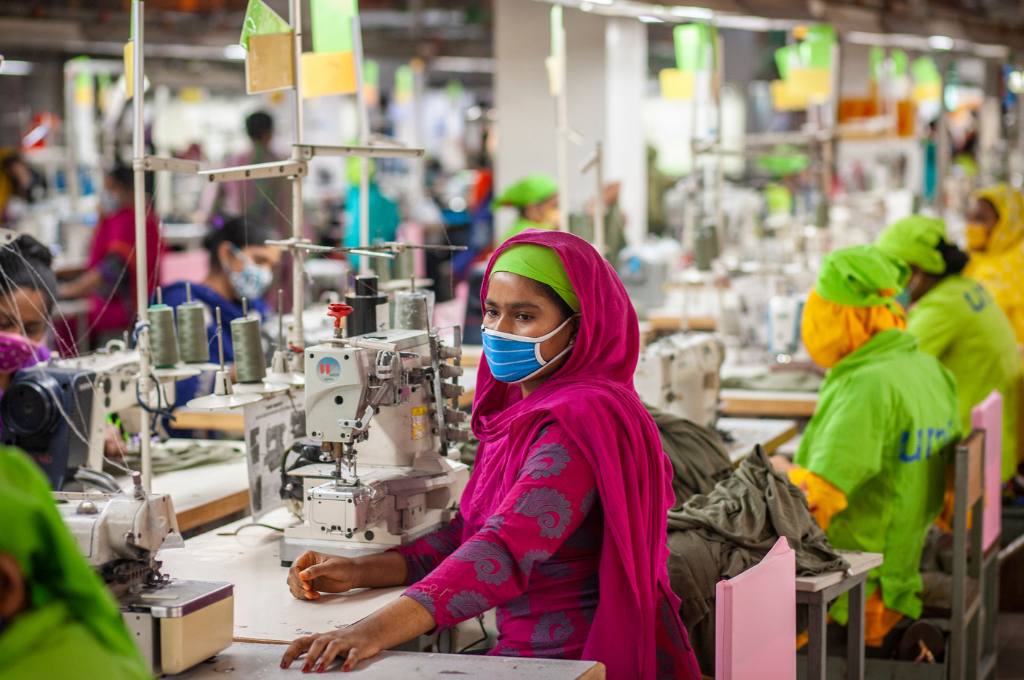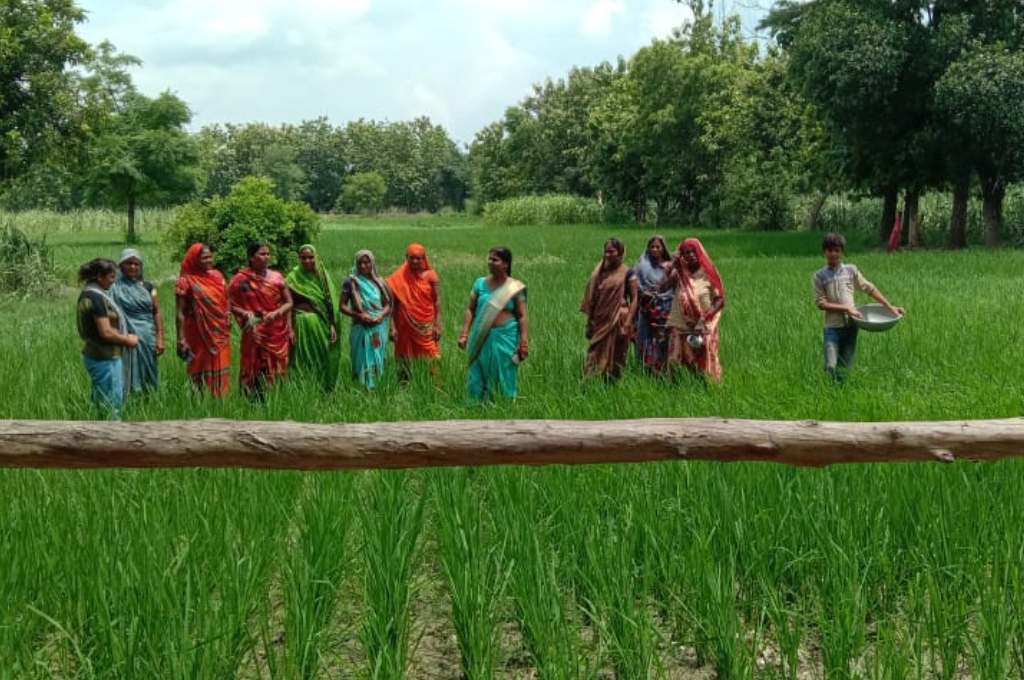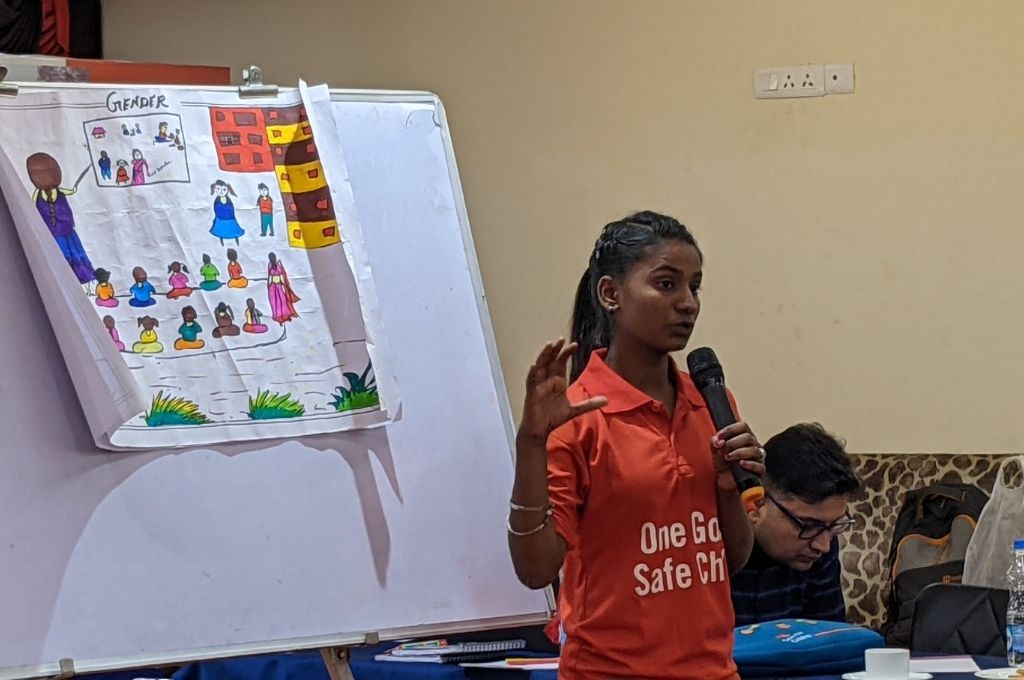I am Nevish, an educator and activist from Gorakhpur, Uttar Pradesh. I chose to call myself Nevish because, as a non-binary person, I could not relate to the name given to me at birth and the caste and gender connotations it carried. Nevish contains the letters of my favourite colour (blue/neel) and the names of my parents (Vimla and Shiv Prakash). I liked the sound of it, and I googled it out of curiosity to find out if it actually meant something. Although I am an atheist, I found it interesting that the name translates to ‘breath of God’ in Hebrew. Ever since then, ‘Nevish’ just stuck with me.
The development sector called to me ever since I was a child. Witnessing the various kinds of inequality and discrimination around me—some of which I experienced myself—inspired me to strive towards facilitating social change.
Therefore, in 2018, I founded We EmbrAce Trust, a community-based organisation that focuses on human rights, animal rights, and climate justice. As part of our climate justice work, we operate under the ambit of Fridays for Future, the global environmental initiative that emerged from the work done by Greta Thunberg. Our work on human rights in Gorakhpur primarily concerns the right to education. We run a slum education programme with children between the ages of three and 12. They come from low-income families; some of them have dropped out of school and some are yet to enter. We help them to prepare for school. Apart from teaching them the contents of school curriculum, the programme focuses on gender sensitisation and promoting appreciation for diversity and inclusivity.
Intersectionality is a key characteristic of the work I engage in. The reason We EmbrAce works in as many seemingly distinct areas is that I understand how multiple marginalised identities can intersect. In addition to these endeavours, I deliver workshops on leadership and mindfulness to social sector fellows for LEAD India to earn a living.
7.00 AM: My mornings begin with meditation. It is a practice I have come to value as part of my everyday life and seek to incorporate into the lives of the children I work with at the education programme. I live close to my parents, so I visit them in the mornings after breakfast. I cherish the time I get to spend with them. After meeting my parents, I return home, respond to emails, and attend any virtual meetings that I may have.
My relationship with my parents has evolved over time. While I was growing up, they wanted me to study well enough to acquire a government job, get married, and have kids. But this future didn’t excite me. I would always question the things that my family took for granted. Once I saw a picture of my mother in a salwar suit. I asked her why she shifted exclusively to sarees after getting married while my father’s attire did not change. She didn’t have an answer. Elders would tell me baal ki khaal mat ukhaado (literally ‘don’t pull the skin of the hair’/don’t nitpick). I didn’t know what baal ki khaal is.
I was a diligent student all through school and graduated with a degree in civil engineering from the Institute of Technology and Management, Gorakhpur. I then pursued a master’s degree in structural engineering, but decided to drop out and shift my focus to social engineering.
In 2014, I moved to Delhi in search of better opportunities. This was also the time when I was beginning to understand my asexuality and non-binary identity. My family was obviously not too pleased with my decision to quit engineering. They asked me why I couldn’t simply join a construction site as an engineer. I briefly even tried doing so, but I found the work environment deplorable. I couldn’t stand the hypermasculinity in those spaces, where the engineers would berate the workers at the site. I got selected as an assistant professor at a college, but I experienced severe self-doubt when a fellow professor asked me why I walked ‘peculiarly’. It made me worry that the students would be even more narrow-minded and would mock me. So I chose not to take up that position.
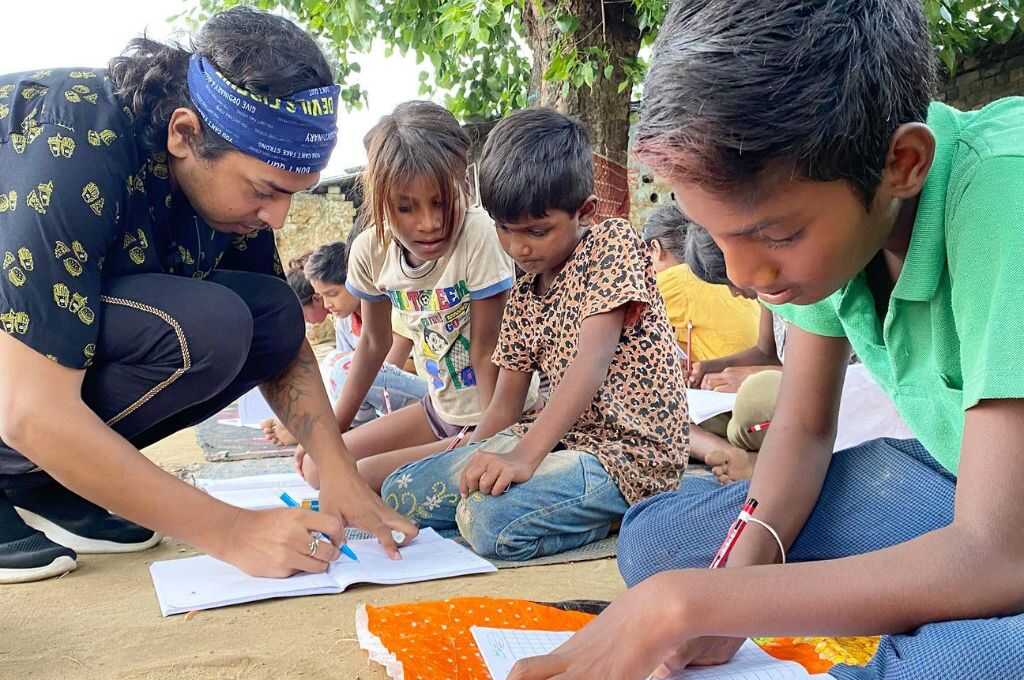
The persistent questioning and self-doubt, coupled with the sudden death of my grandfather and the pressure on me to get married and live a ‘normal life’, resulted in me falling into deep depression. I sought counselling during this time, and it helped me affirm my gender identity. It made me realise that I would like to contribute towards providing safe spaces for other marginalised individuals.
With the hope of doing social work in a more hands-on manner, I joined some queer, feminist, and atheist groups that helped develop my understanding of intersectional politics. In Delhi, I also co-founded Ek Raah Trust, whose work includes educating children from low-income families and providing counselling to LGBTQIA+ people. During the pandemic-induced lockdowns, I worked with children who were struggling for education. My time in Delhi allowed me to learn a lot. But I had to return to Gorakhpur.
In 2021, I became a fellow at Disom, a programme that focuses on nurturing leaders from marginalised sections of the society. When I was in Nagaland as part of the fellowship, I had the chance to interact with Niketu Iralu, a peace activist. During our conversation, he said, “What is in your way is your way,” and these words of wisdom really resonated with me. I realised that returning to my home town to work on issues such as gender sensitisation, discrimination, and child labour made more sense for me than doing so in Delhi. I was aware that returning to Gorakhpur would be a challenge for me as people would be far more critical of gender expression, but I also understood that the region urgently needed reform.
10.00 AM: In Gorakhpur, I work with people with various kinds of political ideologies, even those that don’t match mine. For example, when working on cleaning and awareness drives for the environment, we seek police permission or want to have a dialogue with a local politician. They might not agree with everything I believe, but I feel we all want a cleaner and greener city at the end of the day and can agree on some things.
As part of Fridays for Future, today we headed to public areas such as parks and the lakeside in the city to collect plastic. It is our small contribution to keeping our city clean. On seeing us cleaning up these spaces, people occasionally even join us or apologise for littering. We also get asked about our motivations for doing this, and I always respond by explaining that we are simply choosing to keep our city cleaner and greener in whatever way we can.
These days we are approaching various private and public schools to provide environmental education to students and involve them in the movement.
4.00 PM: The classes for the slum education programme are usually held in the afternoon. My students come from 11 families that are involved in garbage collection in the area. Many of these children are first-generation learners. We try to provide them with the materials necessary to attend school, such as stationery and books.
A big reason I work with children and adolescents is that I understand how impressionable they are. If we really want future generations to flourish and not indulge in discrimination and violence against others, it is critical to sensitise them early. We often underestimate what children are capable of. We think that a child is bereft of any skill until they receive formal education, but children learn to talk, sing, dance, and even lie by just observing the people around them.
We also introduce language that subverts gender norms into the curriculum when we teach children.
When I interact with the children, their observant nature compels them to ask me questions about my ‘unconventional’ appearance and mannerisms. They ask me, “Aapke tattoo ka matlab kya hai?” (What does your tattoo mean?) and “Aapke baal itne lambe kyun hai?” (Why is your hair so long?). This presents me with an opportunity to speak to them about gender and my way of expressing my non-binary identity. We also introduce language that subverts gender norms into the curriculum when we teach children. For instance, we alter statements such as “Ram office jaata hai aur Sita khaana banaati hai” (Ram goes to the office and Sita cooks) to “Ram khaana banaata hai aur Sita office jaati hai” (Ram cooks and Sita goes to the office) in school textbooks. Such simple changes help prevent traditional notions regarding division of labour from entrenching themselves in the minds of these children.
Although one would think that introducing these ideas to children could lead to backlash from their parents, my experiences have indicated otherwise. The parents desperately want their children to have better lives, and they are eager to listen to what we tell them because they believe that we are invested in their children’s well-being.
Even when I was in Delhi, the families of the children we worked with were very receptive to our methods. They agreed to us introducing a transgender teacher to the class, which sensitised the children to diverse expressions of gender identity and provoked them to ask questions about gender that they wouldn’t have otherwise. I remember we also found a way to use music and dance to teach the children about gender. When the boys were singing or dancing and refused to perform a ‘feminine’ move or lyric, I would tell them how a movement or lyric itself has no gender and such connotations are only ascribed to them.
6.00 PM: I have recently started speaking with people who run nonprofits, start-ups, and volunteer and activist groups working on various social issues in Gorakhpur. I reach out to them mostly on Instagram and highlight their work on We EmbrAce’s social media channels. The idea is to build a collective of organisations working on different causes in different areas of the city, so that people who want to work on a particular cause can just join an organisation in their area instead of having to travel to a specific nonprofit’s location.
9.00 PM: Before going to sleep I typically watch a series or read a book. Lately I am only in the mood to watch light-hearted shows such as Friends. In terms of reading, I am typically drawn to feminist works. I am presently reading the updated edition of Seeing Like a Feminist by Nivedita Menon. Apart from that, I also read the works of Ambedkar, Gandhi, and Vinoba Bhave, which inspire me a lot. I find reading and writing poetry to be extremely relaxing. Faiz Ahmad Faiz and Parveen Shakir are among my favourite poets. Being able to read and recite their poetry fills me with great joy, as I am an admirer of the Urdu language. I have an Urdu dictionary that I use to learn new words to grow my vocabulary.
As the day winds down, I get the chance to reflect on the work I have done and what I hope to achieve. I believe that if material that sensitises our youth to the experiences of the marginalised is incorporated into their curriculum, society will be very different 20 years from now. Instead of putting others down, people will be eager to lift each other up. That is the kind of world I would like to see, and I believe that inclusive education is essential to achieve it.
As told to IDR.
—
Know more
- Watch this documentary to learn about the daily experiences of people who identify as asexual.
- Visit this online archive to learn more about the experiences of Dalit queer people.
- Read this article to know how a nonprofit is helping young queer and other marginalised people with counselling and education.
Do more
- Connect with We EmbrAce Trust to learn more about and support their work.


